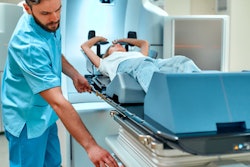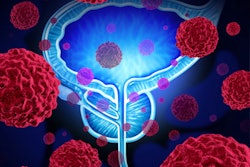
Unless it attracts new students, the profession of radiobiology in the U.S. may cease to exist as a distinct subspecialty, according to a group of U.S. experts.
"If current trends persist, the nation will lack sufficient radiation biology professionals to meet its needs [and] the profession of radiobiology in the United States may cease to exist as a distinct subspecialty," the group wrote, in an article published January 27 in the Journal of Applied Clinical Medical Physics.
Radiobiologists are primarily engaged in basic and translational research. They investigate basic cellular mechanisms underlying risks of radiation exposure and explicate the use of different types of radiation in treatment and imaging.
The authors estimated there are currently only about 500 professionals in the workforce who consider themselves to be radiobiologists, and this number is expected to decrease. Why? One reason is that as traditionally trained radiation biology faculty retire, replacements have come from molecular biology or from other related disciplines, resulting in a lack of faculty members to form the critical mass needed to maintain standalone programs, the authors wrote.
Another reason for a possible coming decrease in radiobiologists is that, while acquiring funding is seen as an essential element for maintaining a position and for career advancement, there's less funding in the radiation biology and radiation sciences areas (according to an analysis of National Institutes of Health funding from 2012 to 2016).
Finally, there are currently only a small number of undergraduate radiation science courses in the U.S., with a few institutions (such as the University of Iowa and the University of Texas Southwestern) specifically covering radiation biology in their curricula.
"If younger radiation biologists fail to move into these positions, a 'black hole' will be created in our institutional knowledge base," the authors wrote.
The authors recommended the following steps to ensure the future adequacy of the nation's radiation biology workforce:
- Reestablish education and training programs to train new radiation biologists.
- Increase enrollments of students in graduate training programs.
- Establish clear career paths to recruiting new graduate students and trainees.
- Formalize the multidisciplinary nature of radiation biology, both at the training and research levels.
- Strongly encourage interactions between radiation biologists and other radiation scientists at meetings.
The authors noted that they made an intentional decision not to recommend in their review detailed methods, timelines, responsibilities of individual organizations, and funding sources -- considering these topics to be outside the scope of their work.
Further research on the state of the field is needed, they wrote.
"This report was undertaken in order to begin addressing this situation, since inaction may threaten the viability of radiation biology as a scientific discipline," the authors concluded.




















